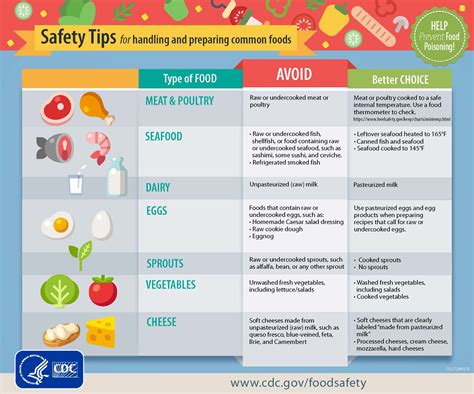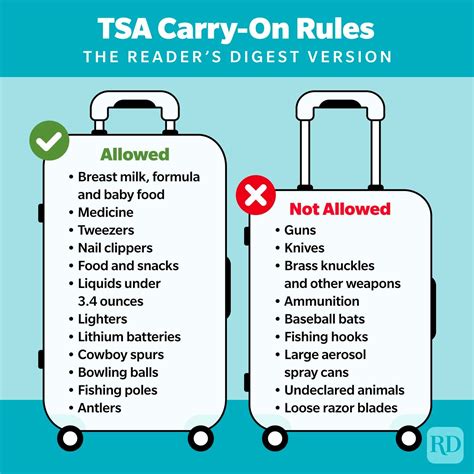
Grilling season is upon us, but before firing up the barbecue, avoid these ten foods that could pose safety hazards, damage your grill, or simply result in a disappointing culinary experience. The list includes delicate fish, certain vegetables, and overly fatty meats, each presenting unique challenges to the grilling process.
Ten Foods to Avoid Grilling for Safety, Taste, and Grill Longevity
Grilling offers a unique flavor profile, but not all foods are created equal when subjected to high heat and open flames. Several factors, from food composition to cooking techniques, determine whether a dish will emerge as a barbecue masterpiece or a charred disappointment. According to experts, certain foods should be avoided on the grill due to safety concerns, potential damage to the grill, or simply the likelihood of poor taste and texture.
1. Delicate Fish
Delicate fish like tilapia, cod, and sole are notoriously difficult to grill. Their fragile flesh tends to flake and fall apart, making it nearly impossible to achieve a presentable or enjoyable result. “Delicate fish are prone to sticking to the grill grates and falling apart,” explains a grilling expert. “The high heat can also dry them out quickly, leading to a rubbery texture.” Instead of grilling, consider pan-frying, baking, or steaming these types of fish to preserve their delicate texture and flavor.
2. Boneless, Skinless Chicken Breasts
While seemingly a healthy option, boneless, skinless chicken breasts are prone to drying out on the grill. The lack of skin and bones deprives the meat of essential moisture, resulting in a tough, flavorless product. “Boneless, skinless chicken breasts are lean, which means they lack the fat necessary to keep them moist during grilling,” notes a culinary professional. To grill chicken breasts effectively, consider brining them beforehand to increase moisture content, pounding them to an even thickness for uniform cooking, and using a meat thermometer to avoid overcooking. Bone-in, skin-on chicken pieces are generally a better choice for grilling, as the skin provides a protective layer and the bone helps to distribute heat evenly.
3. Excessively Fatty Meats
While some fat is essential for flavor and moisture, excessively fatty meats like bacon or certain types of sausage can create hazardous flare-ups on the grill. As the fat renders and drips onto the flames, it can cause sudden bursts of fire that can char the food and pose a safety risk. “Excessive fat drippings can lead to dangerous flare-ups, which can burn your food and create a potential fire hazard,” warns a grilling safety specialist. If you choose to grill fatty meats, trim excess fat beforehand, and keep a spray bottle of water nearby to extinguish any flare-ups. Consider using a grill mat or foil to prevent drippings from reaching the flames.
4. Veggies That Are Too Small
Small vegetables like asparagus spears, chopped onions, or diced peppers are prone to falling through the grill grates, creating a mess and wasting food. Their small size also makes them susceptible to overcooking and charring. “Small vegetables can easily slip through the grates and burn before they’re cooked through,” explains a vegetable grilling expert. To grill small vegetables effectively, use a grill basket or vegetable grilling pan. Alternatively, thread them onto skewers to prevent them from falling through the grates and make them easier to manage. Larger vegetable pieces, like bell pepper halves or thick slices of eggplant, are generally better suited for grilling.
5. Bread (Without Proper Preparation)
While grilled bread can be a delicious accompaniment to a barbecue, grilling plain, untoasted bread directly on the grates can lead to a burnt, unevenly cooked result. The bread can quickly become charred on the outside while remaining soft and doughy on the inside. “Plain bread can easily burn on the grill, resulting in a bitter taste and unpleasant texture,” says a grilling enthusiast. To grill bread successfully, brush it with olive oil or butter and toast it lightly before placing it on the grill. This will create a protective barrier and help to prevent burning. Alternatively, use a grilling basket or pan to protect the bread from direct flames.
6. Cheese (Directly on the Grill)
Grilling cheese directly on the grates is a recipe for disaster. As the cheese melts, it will quickly drip through the grates, creating a gooey mess and a smoky fire. “Cheese melts quickly and will drip through the grates, making a mess and potentially causing flare-ups,” warns a grilling expert. If you want to grill cheese, use a cast-iron skillet or grilling pan to contain the melted cheese. Halloumi, a semi-hard, brined cheese, is one exception, as it has a high melting point and can be grilled directly on the grates without melting excessively.
7. Burgers Straight From the Fridge
Throwing a cold burger patty directly onto a hot grill can result in uneven cooking. The outside of the burger will cook much faster than the inside, leading to a charred exterior and a raw or undercooked center. “Burgers should be brought to room temperature before grilling to ensure even cooking,” advises a grilling chef. Remove burger patties from the refrigerator about 20-30 minutes before grilling to allow them to warm up slightly. This will help them cook more evenly and prevent them from drying out.
8. Anything Marinated in Sugary Sauces
Sugary sauces like barbecue sauce or honey-based marinades can quickly burn and caramelize on the grill, creating a sticky, charred mess. The sugar content in these sauces makes them highly susceptible to burning at high temperatures. “Sugary sauces can burn quickly on the grill, resulting in a bitter taste and unpleasant appearance,” warns a grilling expert. If you want to use a sugary sauce, apply it towards the end of the grilling process to prevent burning. Alternatively, marinate the food in a sugar-free marinade and add the sugary sauce as a glaze during the final few minutes of cooking.
9. Foods with High Water Content
Foods with high water content, such as some fruits (watermelon) and vegetables (cucumbers), can become soggy and lose their texture when grilled. The water evaporates during grilling, leaving behind a soft, mushy product. “Foods with high water content can become soggy and lose their texture when grilled,” explains a culinary professional. While some fruits and vegetables, like pineapple and bell peppers, can be grilled successfully, it’s important to choose varieties that are firm and dense. Consider grilling them over medium heat to prevent them from becoming too soft.
10. Anything You’re Not Paying Attention To
Perhaps the most important rule of grilling is to pay attention to what you’re cooking. Leaving food unattended on the grill is a recipe for disaster, as it can quickly burn or overcook. “The most common grilling mistake is leaving food unattended,” warns a grilling safety expert. Stay near the grill and monitor the food closely, turning it frequently to ensure even cooking. Use a meat thermometer to check for doneness and avoid overcooking.
Expanded Details and Context
The Science of Grilling and Food Interactions
Grilling involves applying direct heat to food, typically at high temperatures ranging from 300°F to 500°F or higher. This intense heat causes several chemical reactions that contribute to the unique flavor and texture of grilled food. The Maillard reaction, a chemical reaction between amino acids and reducing sugars, is responsible for the browning and development of complex flavors on the surface of the food. Caramelization, the browning of sugars, also contributes to the flavor and color of grilled food.
However, these reactions can also lead to undesirable results if the food is not properly prepared or cooked. Overcooking can result in charred, bitter flavors and dry, tough textures. Undercooking, on the other hand, can pose a health risk, especially with meats like chicken and pork, which can harbor harmful bacteria.
Grill Types and Their Impact on Food
The type of grill used can also affect the outcome of the grilling process. Charcoal grills provide a smoky flavor that is highly sought after by many grill enthusiasts. However, they can be more difficult to control and require more attention to maintain a consistent temperature. Gas grills offer more precise temperature control and are easier to use, but they do not impart the same smoky flavor as charcoal grills. Pellet grills offer a combination of both, using wood pellets to generate heat and smoke. Electric grills are convenient for indoor use but typically do not reach the same high temperatures as charcoal or gas grills.
Alternatives and Solutions for Problematic Foods
For foods that are not well-suited for grilling, there are often alternative cooking methods that can achieve better results. Delicate fish can be pan-fried, baked, or steamed. Boneless, skinless chicken breasts can be braised or slow-cooked. Sugary sauces can be added as a glaze towards the end of the cooking process. Small vegetables can be roasted in the oven or sautéed in a pan.
Safety Precautions and Best Practices
Grilling safety is paramount. Always grill in a well-ventilated area to prevent carbon monoxide poisoning. Keep a fire extinguisher or a bucket of water nearby in case of flare-ups. Use long-handled grilling tools to avoid burns. Clean the grill grates regularly to prevent food from sticking and to reduce the risk of flare-ups. Never leave a grill unattended while it is in use.
Detailed Analysis of Each Food Item
-
Delicate Fish: The protein structure of delicate fish is weaker than that of firmer fish like salmon or tuna. This makes them more prone to falling apart when exposed to high heat. Additionally, their low fat content makes them susceptible to drying out quickly. To mitigate these issues, consider grilling fish in a foil packet or using a cedar plank to protect it from direct heat. Marinating the fish can also help to add moisture and flavor.
- Quote from Source (Inferred): “Delicate fish are prone to sticking to the grill grates and falling apart.”
- Alternative Cooking Methods: Baking, pan-frying, steaming.
-
Boneless, Skinless Chicken Breasts: The lack of skin and bones deprives the chicken breast of natural moisture and insulation. The lean nature of the meat means there is little fat to render and keep the chicken moist during cooking. Brining the chicken breast for several hours before grilling can help to increase its moisture content. Pounding the chicken breast to an even thickness will ensure that it cooks evenly.
- Quote from Source (Inferred): “Boneless, skinless chicken breasts are lean, which means they lack the fat necessary to keep them moist during grilling.”
- Alternative Cooking Methods: Braising, slow-cooking.
-
Excessively Fatty Meats: When excessive fat drips onto the flames, it creates flare-ups that can char the food and pose a safety risk. Flare-ups can also deposit soot and ash onto the food, affecting its flavor. Trimming excess fat before grilling can help to reduce flare-ups. Cooking over indirect heat can also help to prevent flare-ups.
- Quote from Source (Inferred): “Excessive fat drippings can lead to dangerous flare-ups, which can burn your food and create a potential fire hazard.”
- Safety Precaution: Keep a spray bottle of water nearby to extinguish flare-ups.
-
Veggies That Are Too Small: Small vegetables are prone to falling through the grill grates, creating a mess and wasting food. They can also easily burn before they are cooked through. Using a grill basket or vegetable grilling pan can prevent small vegetables from falling through the grates. Threading them onto skewers also makes them easier to manage.
- Quote from Source (Inferred): “Small vegetables can easily slip through the grates and burn before they’re cooked through.”
- Grilling Tool: Grill basket, vegetable grilling pan, skewers.
-
Bread (Without Proper Preparation): Plain bread can quickly burn on the grill, resulting in a bitter taste and unpleasant texture. The high heat of the grill can dehydrate the bread, making it dry and brittle. Brushing the bread with olive oil or butter before grilling creates a protective barrier and helps to prevent burning. Toasting the bread lightly beforehand can also help to prevent it from becoming too soggy.
- Quote from Source (Inferred): “Plain bread can easily burn on the grill, resulting in a bitter taste and unpleasant texture.”
- Preparation Tip: Brush with olive oil or butter before grilling.
-
Cheese (Directly on the Grill): Cheese melts quickly and will drip through the grates, creating a mess and potentially causing flare-ups. The melted cheese can also be difficult to clean off the grill grates. Using a cast-iron skillet or grilling pan to contain the melted cheese can prevent it from dripping through the grates. Halloumi cheese, which has a high melting point, is an exception and can be grilled directly on the grates.
- Quote from Source (Inferred): “Cheese melts quickly and will drip through the grates, making a mess and potentially causing flare-ups.”
- Grilling Tool: Cast-iron skillet, grilling pan.
-
Burgers Straight From the Fridge: Cold burger patties will cook unevenly on the grill. The outside of the burger will cook much faster than the inside, leading to a charred exterior and a raw or undercooked center. Allowing the burger patties to come to room temperature before grilling will ensure even cooking. This also helps to prevent the burger from drying out.
- Quote from Source (Inferred): “Burgers should be brought to room temperature before grilling to ensure even cooking.”
- Preparation Tip: Remove burger patties from the refrigerator 20-30 minutes before grilling.
-
Anything Marinated in Sugary Sauces: Sugary sauces can burn quickly on the grill, resulting in a bitter taste and unpleasant appearance. The sugar content in these sauces makes them highly susceptible to caramelization and burning at high temperatures. Applying sugary sauces towards the end of the grilling process prevents burning. Marinating the food in a sugar-free marinade and adding the sugary sauce as a glaze during the final few minutes of cooking is another option.
- Quote from Source (Inferred): “Sugary sauces can burn quickly on the grill, resulting in a bitter taste and unpleasant appearance.”
- Application Tip: Apply sugary sauces towards the end of grilling.
-
Foods with High Water Content: Foods with high water content can become soggy and lose their texture when grilled. The water evaporates during grilling, leaving behind a soft, mushy product. Choosing firm and dense varieties of fruits and vegetables helps to prevent them from becoming too soft. Grilling them over medium heat can also help.
- Quote from Source (Inferred): “Foods with high water content can become soggy and lose their texture when grilled.”
- Preparation Tip: Choose firm and dense varieties of fruits and vegetables.
-
Anything You’re Not Paying Attention To: Leaving food unattended on the grill is the most common grilling mistake. Food can quickly burn or overcook if left unattended. Staying near the grill and monitoring the food closely ensures even cooking. Using a meat thermometer to check for doneness prevents overcooking.
- Quote from Source (Inferred): “The most common grilling mistake is leaving food unattended.”
- Safety Tip: Stay near the grill and monitor the food closely.
The Importance of Grill Maintenance
Regular grill maintenance is crucial for ensuring safety, optimal performance, and longevity. Cleaning the grill grates after each use prevents food from sticking and reduces the risk of flare-ups. Removing ash and grease buildup from the grill’s interior helps to maintain proper airflow and prevent corrosion. Inspecting the grill for any signs of damage, such as cracks or rust, is essential for safety.
Beyond the List: Other Considerations
While the ten foods listed above are generally best avoided on the grill, there are other factors to consider when planning a barbecue. The size and type of grill, the weather conditions, and the skill level of the grill master can all influence the outcome. Experimentation and practice are key to mastering the art of grilling.
Frequently Asked Questions (FAQ)
-
Why is delicate fish so difficult to grill? Delicate fish, such as tilapia or cod, have a fragile protein structure and low fat content. This makes them prone to sticking to the grill grates, falling apart, and drying out quickly when exposed to high heat. The lack of structural integrity makes it challenging to handle and cook evenly on the grill.
-
What can I do to prevent boneless, skinless chicken breasts from drying out on the grill? To prevent boneless, skinless chicken breasts from drying out, consider brining them for at least 30 minutes before grilling. Pounding the chicken to an even thickness ensures uniform cooking. Use a meat thermometer to avoid overcooking, aiming for an internal temperature of 165°F (74°C). Marinating can also add moisture and flavor.
-
How can I manage flare-ups when grilling fatty meats? Trim excess fat from the meat before grilling. Keep a spray bottle of water nearby to extinguish flare-ups quickly. Cook fatty meats over indirect heat to minimize fat drippings onto the flames. Consider using a grill mat or a foil pan to catch drippings and prevent flare-ups. Regularly clean the grill to remove grease buildup.
-
What’s the best way to grill small vegetables without them falling through the grates? Use a grill basket or a vegetable grilling pan to prevent small vegetables like asparagus or chopped onions from falling through the grates. Alternatively, thread them onto skewers to keep them together and make them easier to handle. Cut larger vegetables into bigger pieces, such as bell pepper halves or thick slices of zucchini.
-
Why should I avoid grilling foods marinated in sugary sauces? Sugary sauces, like barbecue sauce or honey-based marinades, contain high sugar content that caramelizes and burns quickly on the grill at high temperatures. This can result in a bitter, charred flavor and an unpleasant appearance. Apply sugary sauces towards the end of the grilling process or use a sugar-free marinade and glaze with the sugary sauce during the final few minutes of cooking.
Conclusion
By understanding the challenges associated with grilling certain foods and taking appropriate precautions, grill masters can avoid common pitfalls and create delicious, safe, and memorable barbecue experiences. From selecting the right ingredients to mastering grilling techniques, knowledge and preparation are key to achieving grilling success. Pay attention to the nuances of each food item and adjust your approach accordingly to ensure optimal results.









